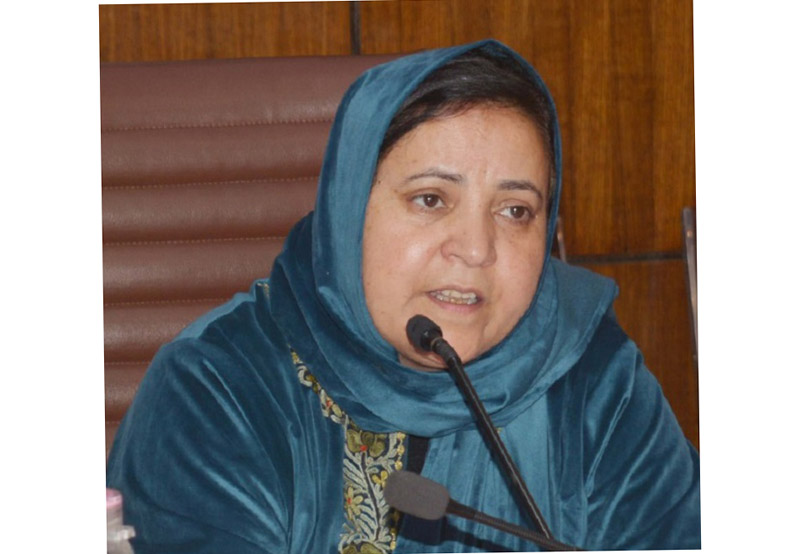Hospitals instructed to prepare isolation beds
Irfan Tramboo
Srinagar, Jan 7: The government has announced its readiness to tackle the Human Metapneumovirus (HMPV), instructing all hospitals in Jammu and Kashmir to prepare isolation beds. While experts reassure the public that there is no cause for alarm, Health Minister Sakina Itoo confirmed to Excelsior that the government is adequately equipped to handle any circumstances.
“We have established preparations. Our primary focus is ensuring the availability of oxygen. We have operational oxygen plants and are committed to keeping them functional and ready for use if needed. These facilities are under constant review,” she stated.
Itoo emphasized the government’s dedication to improving healthcare services and ensuring robust responses to any issues arising from HMPV.
In alignment with directives from the Central Government for States and Union Territories to fortify and evaluate surveillance for Influenza-Like Illness (ILI) and Severe Acute Respiratory Infection (SARI), a Health Department official mentioned to Excelsior that monitoring of SARI and ILI-like cases will now be conducted daily with enhanced vigilance throughout Jammu and Kashmir.
“In addition to other initiatives focused on raising public awareness, all hospitals have been instructed to keep two isolation beds available. It’s also essential to closely monitor SARI data from hospitals, as well as influenza trends,” the official stated.
Professor Ajaz Nabi Koul, Head of the Infectious Diseases Division at SKIMS Soura, reminded Excelsior that there’s no need for panic, pointing out that the virus behaves similarly to influenza and is generally self-limiting.
“It has been circulating for decades. Individuals at the extremes of age and those with compromised immune systems, including patients with structural lung diseases, are at an elevated risk,” he explained.
Experts note that symptoms of HMPV encompass cough, fever, nasal congestion, and shortness of breath. In severe instances, it can lead to bronchitis and pneumonia.
Though there is no specific antiviral treatment or vaccine for HMPV, management focuses on alleviating symptoms. This includes maintaining hydration, resting, using pain medications, managing respiratory symptoms, and providing oxygen support for severe cases.
The virus spreads through droplets from coughing or sneezing, through close personal contact (like touching or shaking hands), and by touching contaminated surfaces before touching the face.
Experts highlight that in temperate regions, the virus generally circulates from winter to spring. Data from the Centers for Disease Control and Prevention (CDC) indicate that HMPV is most active during late winter and spring.


Leave a Reply